The fashions world is changing and it’s for the better! New laws are being created in Europe to control the misinformation and lack of transparency from the fashion industry. It has been said that shoes that say “Made In Italy” may not be made there, well at least not the whole shoe. Some of these laws are a work in progress and will take time to go into full effect, yet they will allow consumers to make conscientious decisions about their purchases.
Fraas, a company we carry, has been on the forefront of change, using recycled t’shirts and plastic bottles in their scarves and they also run their factories in an eco sustainable way and companies like Wuxly, Pixie Mood and Louenhide; who we are currently carrying, are using recycled materials in their products.
I found this great article from the Business Of Fashion that I thought I would share.
By Sarah Kent!
For the last two years, LVMH has been gearing up to provide consumers with unprecedented levels of information about where and how its clothes and shoes are made.
Across its brands, from Louis Vuitton and Dior to Celine and Loewe, the French luxury titan is pushing to unravel complex supply chains, trace the origins of its products and pin down granular data needed to comply with an oncoming wave of regulation aimed at addressing fashion’s environmental impact. It’s a huge undertaking to track the information across houses and products, and it’s still a work in progress.
“We have a gap in every maison,” said LVMH environmental deputy director, Alexandre Capelli.
The company is racing to align with new laws; on Jan. 1, France quietly made it mandatory for fashion’s biggest companies to give shoppers detailed information about environmental characteristics like the proportion of recycled material in a product, as well as where garments are sewn and materials woven.
Compliance is complicated and will require companies to have a much greater command of their supply chains than most currently do. And while some of the proposed new rules are likely to take years to wend through the legislative process (and even longer to come into force), others – like France’s new law – will require companies to act now.
Fashion isn’t ready.
A Test Case
France’s new requirements fall under the country’s Anti-Waste for a Circular Economy, or AGEC, law, which aims to push companies towards more circular production and shoppers towards more responsible consumption habits. It requires brands to provide consumers with much more transparency about the countries they source from and the environmental impact of the materials used.
For instance, if a brand says a T-shirt is made of recycled material, it will need to disclose the proportion that is recycled. If more than 50 percent of a garment is made of synthetic fibres, it needs to carry a warning that it will shed microfibres in the wash. There are strict guidelines governing whether a company can claim an item is recyclable, and brands are required to publish the country where a product is made, as well as where the core material it contains is processed and manufactured.
“It’s the first time a regulation has required so much disclosure in the entire industry,” said Baptiste Carriere-Pradal, speaking in his capacity as co-founder and director at public affairs consultancy 2B Policy. He also chairs the Policy Hub, an EU advocacy group that represents the interests of fashion trade groups. “The industry is not prepared at all.”
Though the law’s introduction is staggered to give smaller brands more time to get ready, it came into force for the biggest brands this month. Just figuring out whether a company is covered can be complicated. This year, the law applies to businesses that sell more than 25,000 items a year in France and generate revenue in excess of €50 million ($54 million) in the country. It doesn’t cover leather goods.
“It’s really complicated,” said Sophie Bonnier, head of environmental excellence and circularity at French luxury conglomerate Kering. “We have to define for each brand who is concerned, when, and then have to find the information to be published.” In Kering’s case, the conditions mean that Gucci and Balenciaga are covered this year, but other major labels, like Bottega Veneta and Saint Laurent, are not.
